‘Religion, Economics and ASEAN Community” – Hanoi, 23-24 October 2017
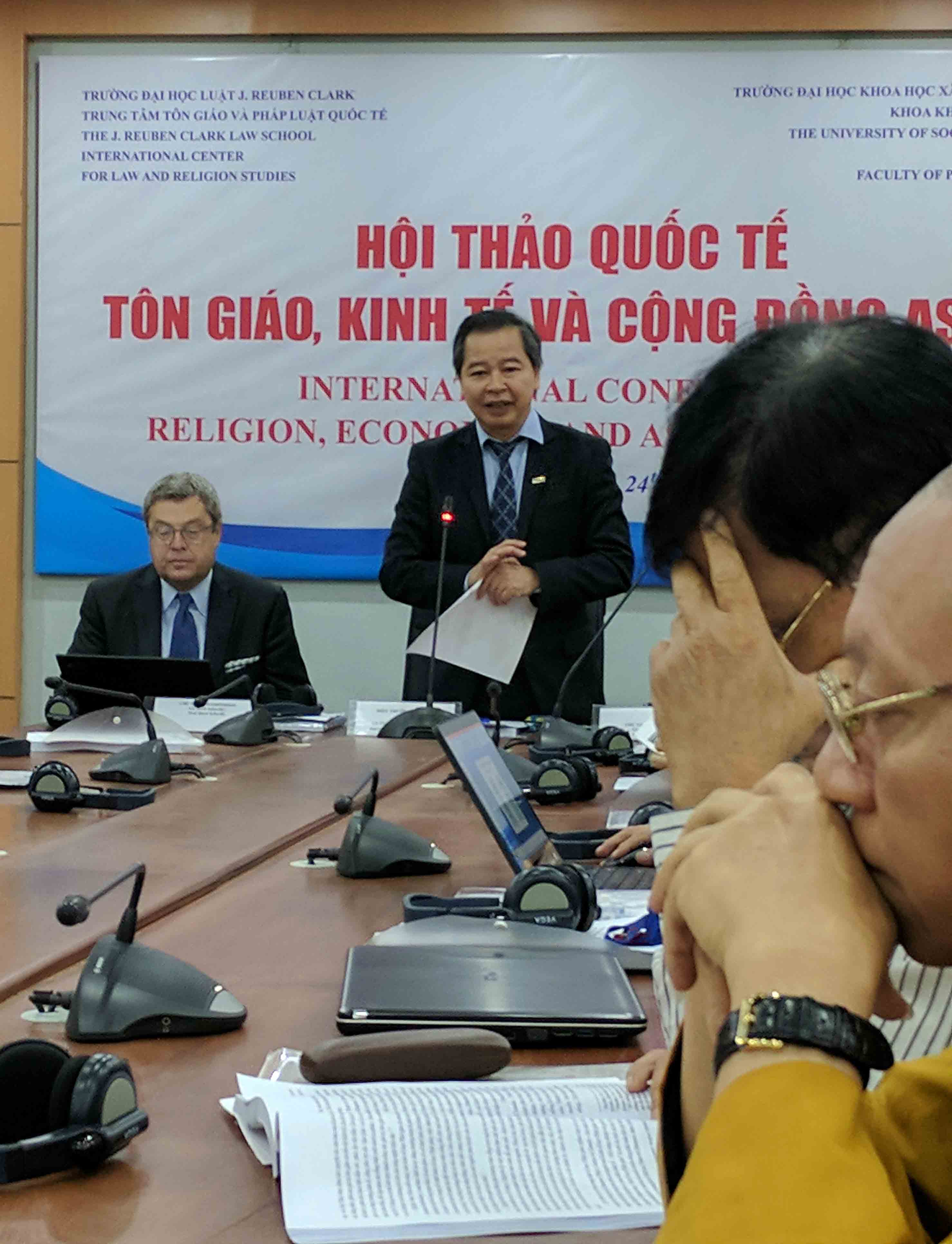
Report by Neville Rochow
On 23 and 24 October 2017, the International Center for Law and Religious Studies, represented by its director, Professor Brett Scharffs, took part in a conference at the Hanoi School of Social Sciences and Humanities. Professor Scharffs’ participation continued what is now a more than decade-long tradition of partnership with the University of Social Sciences and Humanities in Hanoi and the Institute for Global Engagement in holding conferences on law, religion, and economics.
This year’s conference was entitled ‘Religion, Economics and ASEAN Community’ and attracted expert speakers from a variety of academic disciplines and religious perspectives. Experts came from Vietnam, neighboring ASEAN countries, and from the United States and Australia. …
Gary Doxey, Scott Isaacson, and Denise Lindberg attend Annual Colloquium of the Latin American Consortium for Religious Liberty
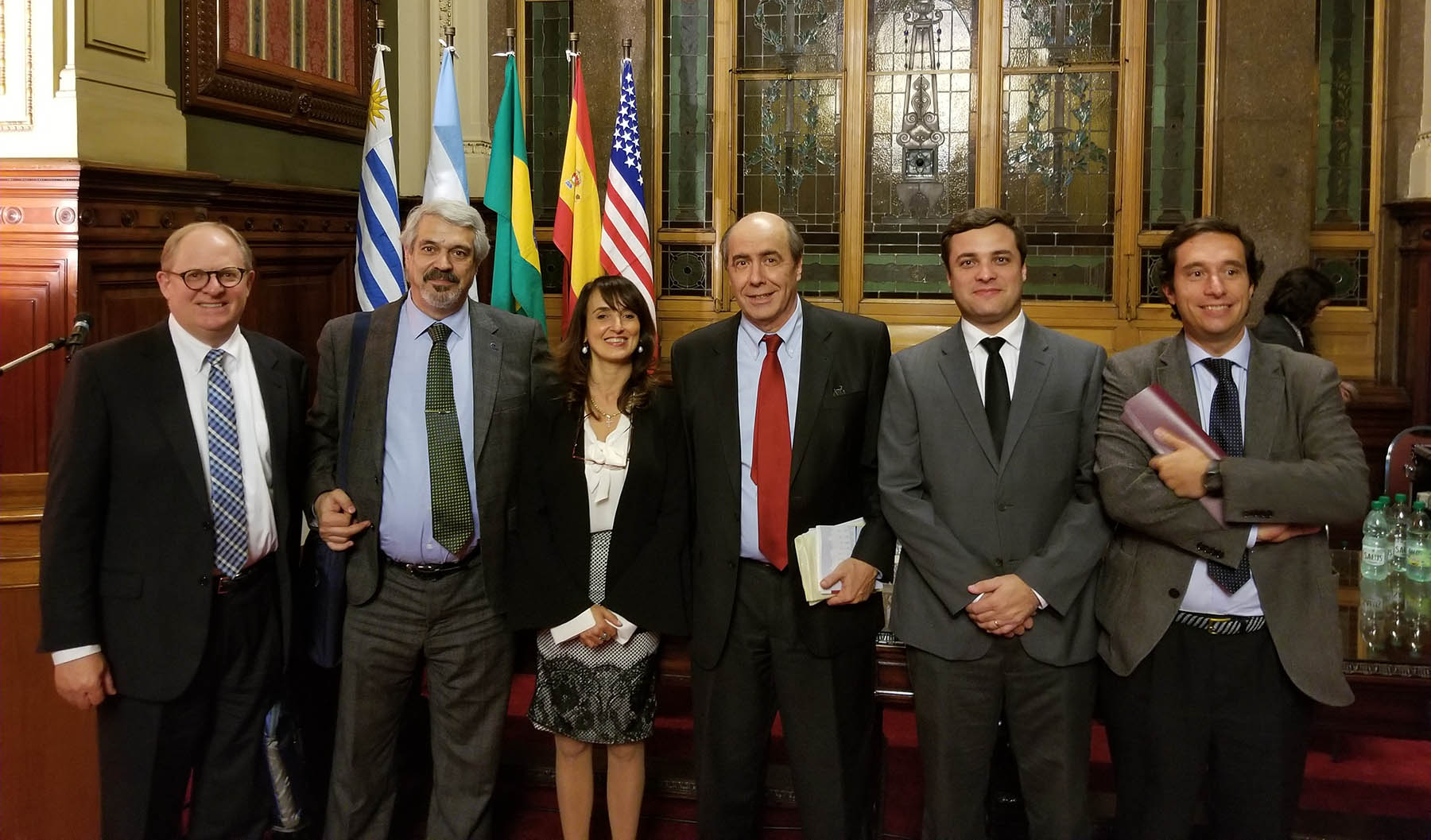
Associate Director Gary Doxey and Senior Fellows Scott Isaacson and Denise Lindberg attended the annual colloquium of the Latin American Consortium for Religious Liberty in Montevideo, Uruguay. The colloquium, held the 6-9 of September 2017, focused on laicidad, the Latin American version of separation of church and state. The Center was a principal sponsor of the event, which took place in the chambers of Uruguay’s national Senate as well as at the Universidad Católica del Uruguay, the country’s most prestigious institution of higher education.
The colloquium drew scholars from around Latin America. The Latin American…
International Forum on Law and Religion, University of the Philippines – 3 August 2017
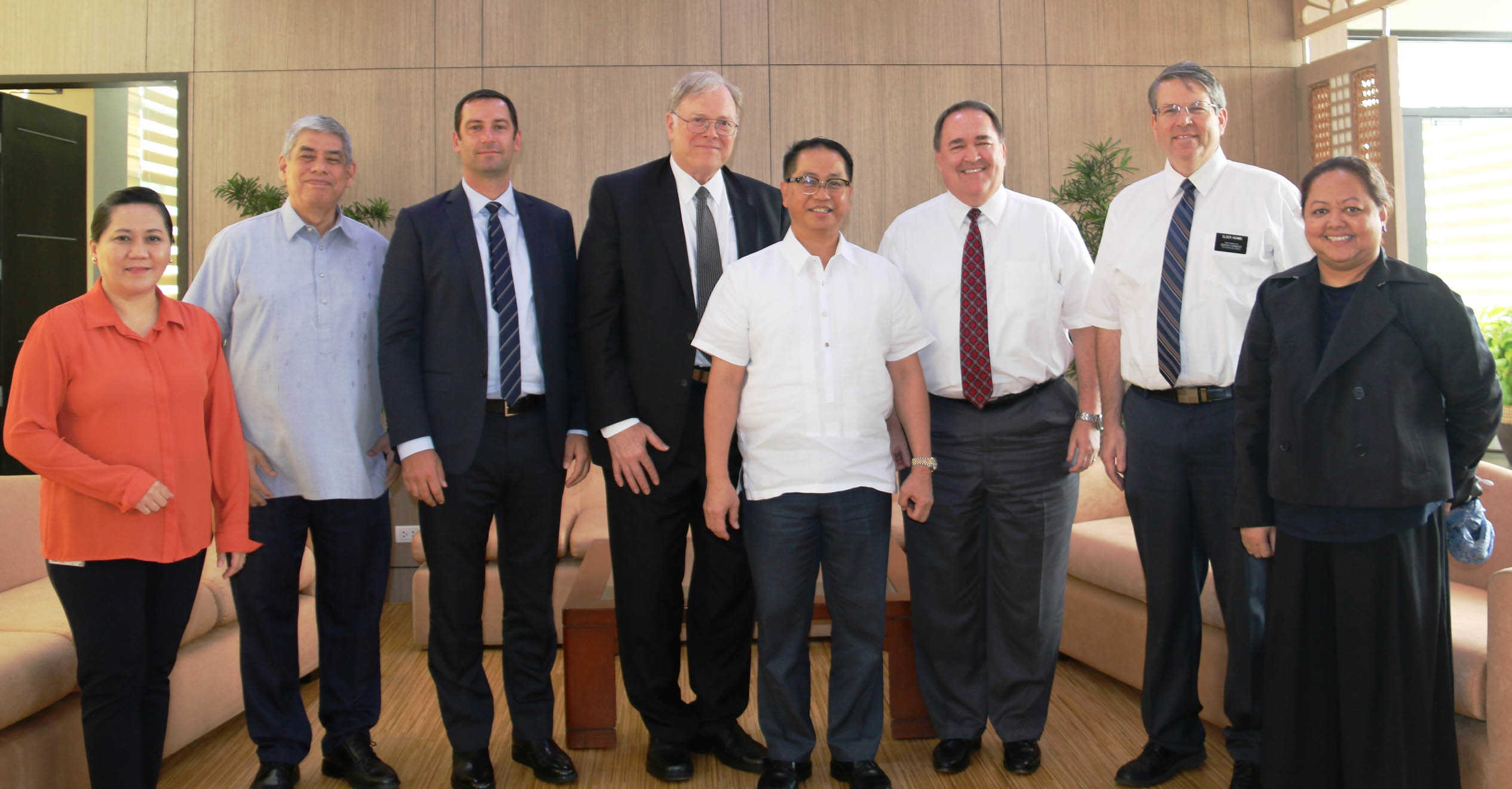
An International Forum on Law and Religion: The Secular State and Religious Freedoms was held at the University of the Philippines, Diliman, Quezon City on August 3, 2017, sponsored by the International Center for Law and Religion Studies of Brigham Young University, the University of the Philippines College of Law, the J. Reuben Clark Law Society, and the Philippine Center for Islam and Democracy. The purpose of the event was to raise awareness of the international importance of protecting freedom of religion, form alliances and relationships among government leaders, judges, attorneys, scholars, prominent individuals, and leaders and members of faith-based groups in order to strengthen religious freedom in the Philippines, and encourage legal and scholarly efforts to defend and protect freedom of religion.
Among the approximately 200 people in attendance were prominent interfaith leaders; an ambassador and representatives from embassies of Argentina, US, Britain, Austria, Switzerland, and Netherlands; lawyers, justices, and judges, including former and current justices of the Philippine Supreme Court and a judge of the International Criminal Court; law students and faculty from several participating law schools; media personnel, and members and staff from the Philippine Senate and Congress.
G20 Interfaith Forum, Potsdam, Germany, 15-17 June 2017:
Religion, Sustainable Development, and the Refugee Crisis
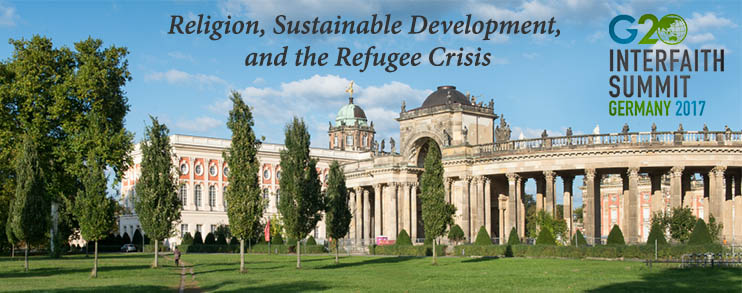
The 2017 G20 Interfaith Forum, Religion, Sustainable Development, and the Refugee Crisis, was held at the University of Potsdam, Germany, 15-17 June 2017. This highly successful event brought together experts on economy, law and politics, as well as global leaders from various religious, professional, and humanitarian backgrounds to highlight the key role that religion plays in promoting aspects of achievement of the United Nation’s post-2015 Sustainable Development Goals that Germany chose to highlight during this year’s G20 Summit, held in Hamburg 7-8 July. Special attention was paid to issues surrounding the refugee crisis, addressing concerns such as religious extremism and the other issues, including the environment, where religious voices have much to contribute.
The…
Tbilisi, Georgia: Religion and the Legacy of the Soviet State: A 25-year retrospective
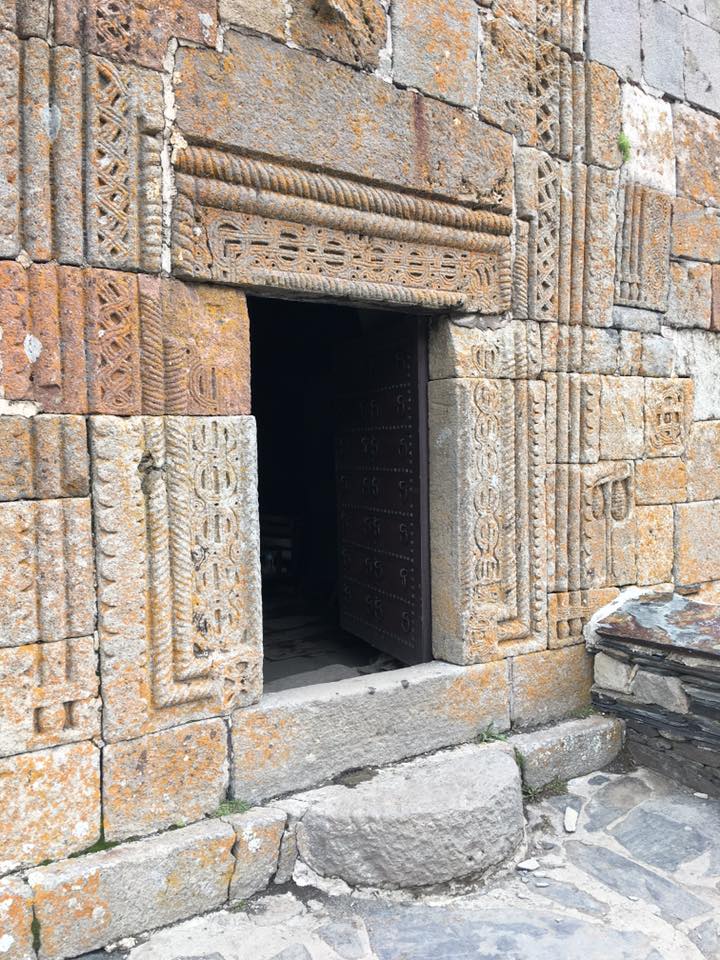
The International Conference ‘Religion and the Legacy of the Soviet State: A 25-year Retrospective’, was held 2-4 June 2017 in Tbilisi, Georgia. Organized by the Free University of Tbilisi, School of Law and the International Center for Law and Religion Studies of Brigham Young University (USA), the conference marked the 25 years (in 2016) since the disbandment of the Soviet Union. Seeking to explore the long-term impact of the Soviet state in the sphere of religion, conference presentations asked questions: How have Soviet approaches been adapted or rejected in post-USSR countries? How have post-Soviet states responded legally to the restrictive regulation of religion, the appropriation of religious property, and other results of the Soviet regime?
Conference languages were Georgian, English, and Russian.
The aim of the conference and its future publication was to tackle these issues…
Religion, Law, and Security in Africa: Rabat Morocco, 14-17 May 2017
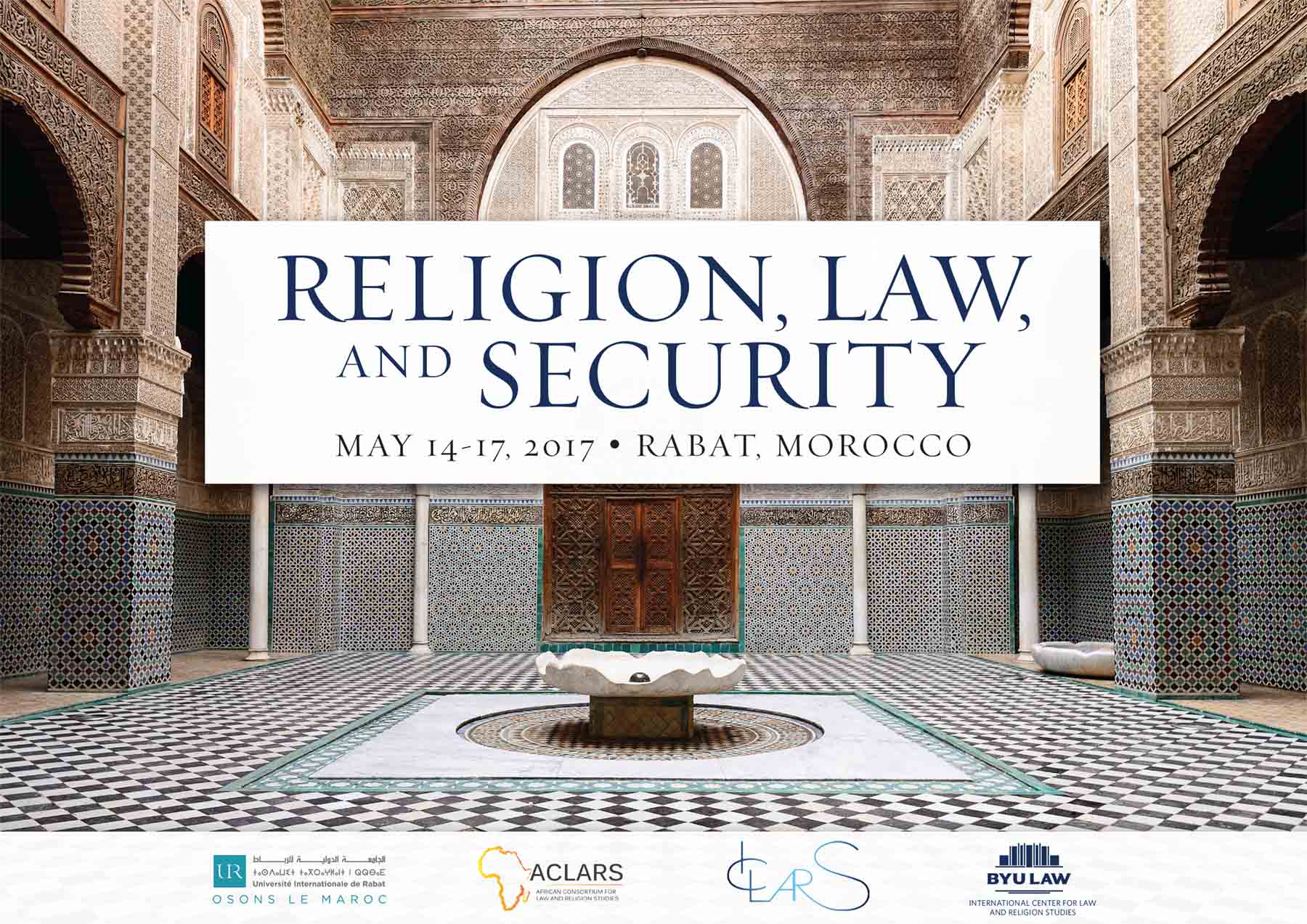
The Fifth Annual Conference of the African Consortium for Law and Religion Studies (ACLARS) took place in Rabat, Morocco, from 14 to 17 May 2017. Following the success of conferences in Ghana (2013), South Africa (2014), Namibia (2015) and Ethiopia (2016), this event was a collaboration of ACLARS with the International University of Rabat; the International Center for Law and Religion Studies (ICLRS) of Brigham Young University Law School, United States; and the International Consortium for Law and Religion Studies (ICLARS), Milan, Italy.
Participating in this highly successful event were more than 100 scholars and government and religious leaders from Algeria, Benin, Botswana, Cameroon…
Peace, Stability, and Sustainable Development: The Role of Religion, 13-15 January 2017
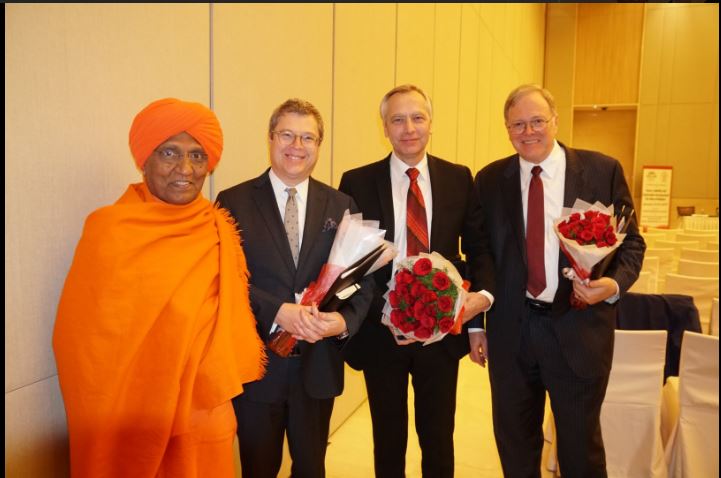
The conference “Peace, Stability, and Sustainable Development: The Role of Religion” took place in Hyderabad, India from 13-15 January 2017. The conference was co-sponsored by the National Academy of Legal Studies and Research (NALSAR) University of Law, India; the International Center for Law and Religion Studies of Brigham Young University Law School, United States; and King and Diane Husein.
The opening session featured an inaugural address by Neera Chandhoke, Professor Emeritus, Department of Political Science, University of Delhi, New Delhi, and speakers Ján Figel’, Special Envoy for Promotion of Freedom of Religion or Belief (FoRB) outside the European Union, European Commission, Slovakia; and W. Cole Durham, Jr., Susa Young Gates University Professor and Founding…